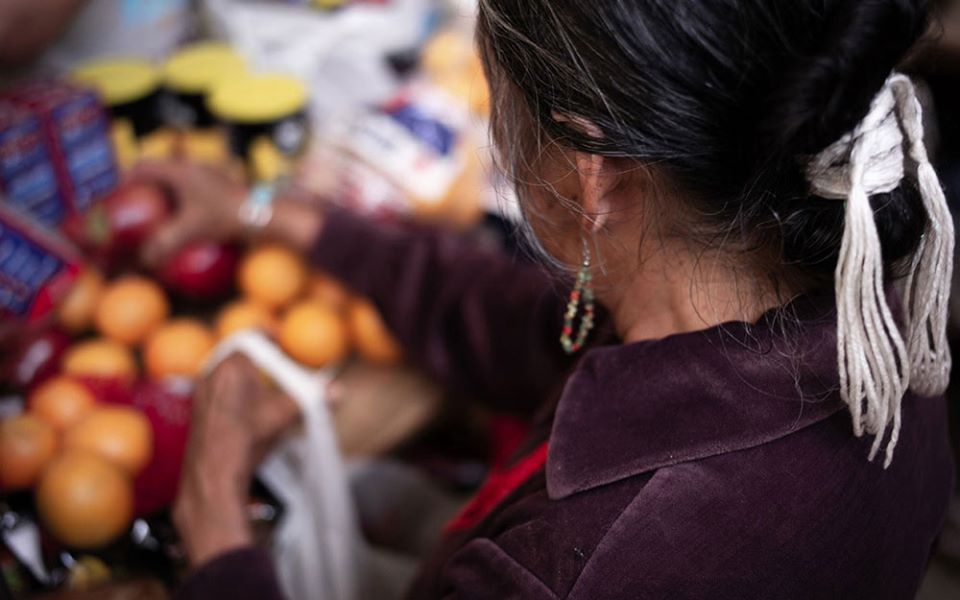Greetings, Agents of Impact!
Featured: ImpactAlpha Original
Creative financing to unlock COVID aid in Alabama. The financial strains the COVID pandemic has caused in many cities and states can be seen in sharp relief in Alabama’s Black Belt, originally named for the area’s rich soil. Tax receipts have plummeted while spending on public health has soared. Even accessing federal relief funding is a challenge in the region, which contains some of the state’s most persistently impoverished communities and accounts for a disproportionate share of Alabama’s COVID cases. The state will only distribute the nearly $19 million in federal CARES Act funding allocated to Black Belt towns and counties as reimbursements for COVID-specific expenses. Many struggling rural towns don’t have the money to make much-needed purchases up front. And the purchases must also be made by year-end. “We did not have extra money in the budget to go out and buy PPE,” or personal protection equipment, Jamaal Hunter, the mayor of Uniontown, population 2,260, told ImpactAlpha.
In an innovative collaboration, The Black Belt Community Foundation’s COVID-19 Access Program will lend up to $50,000 to towns and municipalities for personal protection equipment and other public health purchases. The local governments pay the money back when they are reimbursed by the government; the funds go back into the lending pool. The loans, in the form of recoverable grants, are funded by Hope Credit Union, which will provide a $1.6 million line of credit to the community foundation. The program is backstopped by $825,000 in guarantees from several local foundations, including the Alabama Power Foundation. The utility’s philanthropic arm has convened local stakeholders to create an ecosystem of place-based funders (see “Investors share experiences in getting their assets off the sidelines”). “There are solutions to the Black Belt,” says the community foundation’s Felecia Lucky. “They may look different, but that doesn’t mean they don’t exist and they don’t have value.”
Keep reading, “Creative financing to unlock COVID aid in Alabama,” by Amy Cortese on ImpactAlpha.
Dealflow: Follow the Money
eFishery reels in financing to connect fish farmers to feed and tech. The company’s platform offers Indonesia’s smallholder fish and shrimp farmers supplies like feed and automatic feeders, as well as access to finance and markets, via 30 hubs across 24 provinces. The company estimates that there are 3.3 million small fish farmers in Indonesia. It will use the funding to open 100 new hubs. Go-Ventures and the Northstar Group co-led the Series B round, the size of which was not disclosed.
Impossible Foods raises $200 million to meet demand for plant-based meat. Coatue Management led the round, bringing Impossible’s total fundraising to $1.5 billion. Mirae Asset Global Investments, Temasek Holdings and XN Capital also participated. The alternative meat company is diversifying its product line with alternatives for pork, steak and milk.
Masdar agrees to acquire half of EDF Renewables’ North America portfolio. The U.A.E.-based clean energy developer will take a 50% stake in EDF’s 1.6-gigawatt wind, solar, and energy storage assets in North America. The two firms are partnering on a large wind farm in Saudi Arabia. The deal will enable Masdar to expand outside of the Middle East.
Luxelare raises crowdfunding to help Latin American farmers monitor fields. The Mexico-based B Corp. connects farmers of any size with drone and satellite-based monitoring to keep track of field health and secure insurance. Luxelare crowdfunded its first round last year; its second campaign closed at MX$7.5 million ($338,300).
Kenya’s WorkPay raises $2.1 million to offer HR tech to small businesses. The three-year-old startup helps businesses digitize human resources and payroll systems. Africa-focused VC firm Kepple Africa and Y Combinator backed the round.
Signals: Ahead of the Curve
Overcoming obstacles to Navajo entrepreneurship. Among the hardest places in the world to do business: Zimbabwe, Central African Republic and… Navajo Nation. The lack of access to land, property and finance, and inadequate dispute resolution processes, means Navajo Nation, which spans Arizona, New Mexico and Utah, ranks with the bottom 15% of countries for starting and running a business. “Doing Business on the Navajo Nation,” from Native-led business incubator Change Labs and program evaluator Casual Design, is the first comprehensive survey of the business environment on a Native U.S. territory. Change Labs’ Heather Fleming told ImpactAlpha that she suspects that others face similar challenges owing to the difficulty of accessing land for business registration. “The land issue is the root cause of a lot of this, and if everybody has that, then they probably have every other issue too.” (See, “Bringing global social innovation home to the Navajo Nation.”)
- Long waits, higher costs. Accessing land on the Navajo Nation requires four times as many procedures and takes six times as long as off the reservation. Getting access to electricity takes 6.5 times as long and costs four times more. Resolving commercial disputes can take up to two years. The organizations used the World Bank’s Doing Business framework to analyze the business environment on the U.S.’s largest Indian reservation. ”We had suspected it would be low, but not as low as the bottom 15%,” Fleming says.
- Navajo entrepreneurship. Change Labs, an advocate for entrepreneurship, has helped disseminate $170,000 in COVID relief funding. It is petitioning for federal funding to clean up vacant, contaminated buildings on prime lots in Tuba City, Ariz., the largest community on the reservation. “You look at all of these issues and it’s easy to wonder, ‘Well, what can I do?'” said Fleming. “This petition is one thing we can do.”
- Easing business costs. Change Lab and Casual Design advocate reducing the reviews for business leases and speeding the site leasing process. The Navajo Nation could better leverage technology for essential business functions. A digital map of land types would address a critical land access challenge. “Now that we have the problem defined, we can begin to explore new partnerships and new solutions to address the problem,” Fleming says.
- Share this post.
Agents of Impact: Follow the Talent
Kriss Deiglmeier, ex- of Tides Foundation, joins data-analysis tech company Splunk as chief impact officer… Google is looking for a sustainability project manager for its global data centers… Propagate Ventures is hiring a project manager and other roles in Hudson, New York… The Aspen Institute is hosting “Our Essential Work: Immigrants and rural economies weathering the pandemic together,” on Wednesday, Aug. 19… Net Impact’s Cecily Joseph is convening “The Color of Law, the Color of Money: Restorative Solutions to Redress the Racial Wealth Gap,” with Kirwan Institute’s Darrick Hamilton and CapEQ’s Tynesia Boyea-Robinson (see, “Buying Black shouldn’t be so hard. Here’s how investors can help”) on Thursday, Aug. 27.
Thank you for reading.
–AUg. 17, 2020











